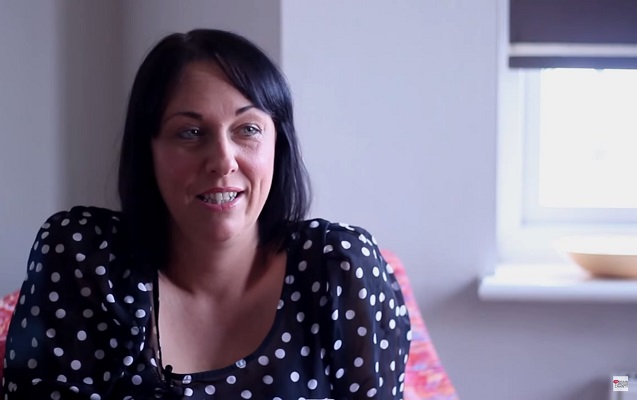My employee has a brain tumour
We’ve put together some guidance for supporting employees who are diagnosed with or caring for someone with a brain tumour.
Supporting your employee after a brain tumour diagnosis will make a big difference to them and may help to prevent you losing their skills and experience. It is your responsibility to make sure they are treated fairly in the workplace. And there’s a lot you can do that isn’t expensive, as well as help available for things that cost more.
On this page:
Asking your employee what they need
Knowing your legal responsibilities
Making reasonable adjustments.
1. Learn about brain tumours and their effects
There are over 130 types of brain tumours as classified by the World Health Organisation (WHO). Brain tumours affect everyone differently.
The side-effects will depend on lots of factors, including the type and location of someone’s tumour and any treatment they are having.
You can read more about the possible side effects of brain tumours to help you understand what these could include.

Expert benefits & money advice
Last year our free Benefits and Money Clinic helped 332 members of our community claim over £950,000!
2. Ask your employee what support they need due to their brain tumour
Don’t be afraid to ask your employee about their, or their loved one’s, brain tumour and also what would help them.
How you ask your employee will depend on the relationship you have with them, but it should be an ongoing conversation, not a one-off. That way your employee knows they can talk to you if they have concerns or as their needs change.
Keep in touch if they are absent from work for a length of time (but don’t overdo it – follow their lead).
Ask them what they need – learning about brain tumours will help you understand their condition, but talk to your employee about their brain tumour and how it affects them. This will help you support them in the best way.
Don’t make assumptions about what your employee can and can’t do. They may need very little additional support, if any. For example, people whose only symptoms have been seizures, but these are under control, may feel they don’t need any particular support.
3. Know your legal responsibilities
To make sure your employee is treated fairly in the workplace, it can help to remember your legal responsibilities as an employer.
Does having a brain tumour mean that my employee is disabled?
If someone has cancer (a high grade brain tumour is deemed to be cancer), the law considers them to be disabled.
Also, if someone has a low grade tumour , it is likely that they will be legally considered to have a disability.
The Equality Act 2010 says that someone is disabled if:
- they have a physical or mental impairment
- that impairment has a long-term and substantial adverse effect on their ability to carry out normal day-to-day activities
The definition of being disabled is if the effect on their day-to-day activities is substantial and long term.
Read more about the definition of disability.
What laws protect employees with a brain tumour?
Under the Equality Act 2010 (in England, Scotland & Wales) and the Disability Discrimination Act 1995 (DDA) [in N. Ireland], being termed ‘disabled’ gives people certain protections in the workplace, or if they are applying for a job. These Acts also give some protection to people caring for someone with a brain tumour.
It is the employer’s responsibility to make sure these protections are in place.
This includes:
- Protection from discrimination because of their ‘disability’ (e.g. from sacking them, making them redundant or passing them over for promotion or specific jobs because of their brain tumour).
- Protection from disability-related harassment (e.g. making jokes or disparaging remarks about your employee’s symptoms).
- Making ‘reasonable adjustments’ to a disabled employee’s working practice and work environment to support them in returning to, or staying in, work.
Other relevant laws
These give all employees certain rights to confidentiality and privacy at work.
In other words, an employer is not allowed to share any sensitive personal information about an employee without their permission. So you cannot tell any other colleagues about your employee’s brain tumour nor their treatments, unless they say you can. Nor should you discuss their health where other people could overhear or in an email that could be passed onto someone else.
What laws protect employees caring for someone with a brain tumour?
- The Employment Rights Act 1996 [in England, Scotland & Wales]
- The Employment Rights (Northern Ireland) Order 1996
- The Employment Relations (Northern Ireland) Order 1999
These give everyone the right to a reasonable amount of time off (unpaid) to look after dependents in an emergency.
For example, this could be the partner or parent of someone who has just been diagnosed with a brain tumour and who is having treatment immediately or with very short notice.
- The Children’s & Families Act 2014 [in England, Scotland & Wales]
- The Flexible Working Regulations NI 2015 [in N. Ireland]
- The Employment Relations (Flexible Working) Act 2023 [in England, Scotland & Wales)
These give any employee the right to ask for flexible working, after 26 weeks of employment. This could include variations in working times, hours and locations.
4. Make reasonable adjustments where appropriate
What is reasonable will depend on your company and what your employee does. You only need to make adjustments that stop your employee from being at a disadvantage due to their disability.
It is important to discuss and agree to any adjustments with your employee.
There are three types of ‘reasonable adjustments’. These could be:
- Changes to the way things are done in the workplace
- Physical changes to the workplace premises/environment
- Providing extra aids or support
Many reasonable adjustments cost very little or nothing. For example, flexible working hours, so they avoid the rush on public transport; moving their workspace to the ground floor or closer to a toilet.
For more suggestions, see our examples of reasonable adjustments.
Support for identifying and implementing adjustments
Occupational health services
Occupational health teams help to keep people well at work – both physically and mentally – and help them get back to work following ill-health.
If you work for a large organisation, they may have their own occupational health adviser/ department. It would be useful for your employee to talk to them. They can help create a ‘return to work plan’. This will look at work-related and wider personal issues which may be preventing, or making it difficult, for your employee to stay in, or return to, work. It can then suggest ways to overcome these obstacles.
If you are part of a smaller company that doesn’t have its own occupational health service, then you can access other services that you can use for free.
For a list of services, see our information on employment advice organisations.
Assistive technology
To help you know what technology is ‘out there’ that can help your employee continue to work, there are organisations that can offer personalised workplace assessments to help identify the reasonable adjustment that can help.
For a list of services, see our information on employment advice organisations.
Access to work
Where adjustments cost more e.g. putting in a ramp or providing aids, such as modified chairs or keyboards, you may be able to get help through schemes such as Access to Work.
Access to work [in England, Scotland & Wales] and Access to Work (NI) [in N. Ireland] is a grant which can pay for practical or financial support for disabled people so they can apply to, stay in or return to work.
It can be used for a variety of things e.g. to pay for adapted equipment, making the workplace more accessible, fares to work if your employee can’t use public transport, extra training or communication support in the workplace.
Your employee has to apply for this, and how much they get will depend on their circumstances, such as the amount they are earning and any benefits they are receiving.
Support and Information Services
Research & Clinical Trials Information
You can also join our active online community.

Get support
If you need someone to talk to or advice on where to get help, our Support and Information team is available by phone, email or live-chat.
Recommended reading

I struggle to work
Tasmin is a single mother of three children, and lives in Cheshire. She was diagnosed with a meningioma in 2013 and underwent a craniotomy. She is a midwife but has struggled with work and finances since the onset of her tumour.
Share your experiences and help create change
By taking part in our Improving Brain Tumour Care surveys and sharing your experiences, you can help us improve treatment and care for everyone affected by a brain tumour.